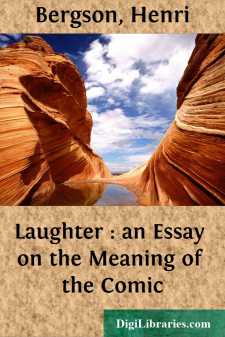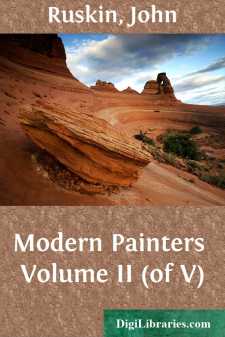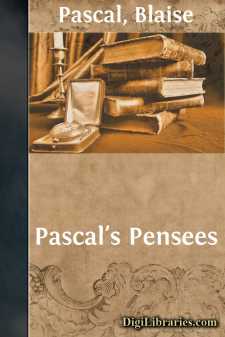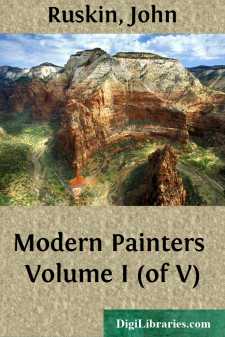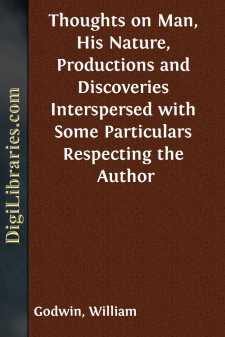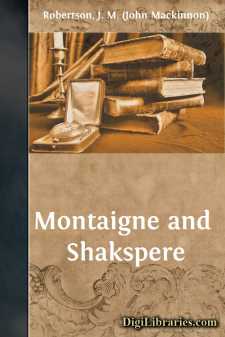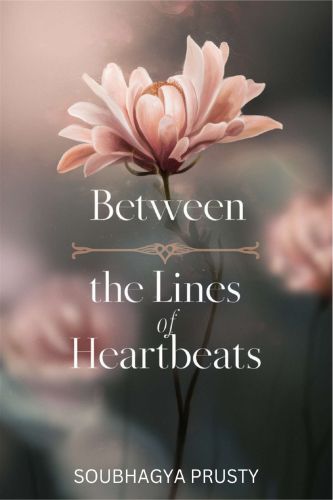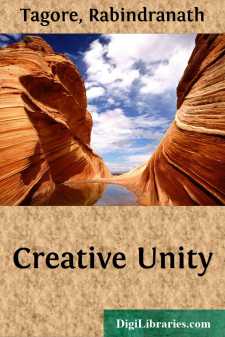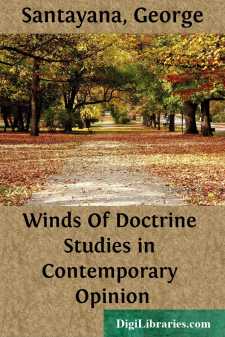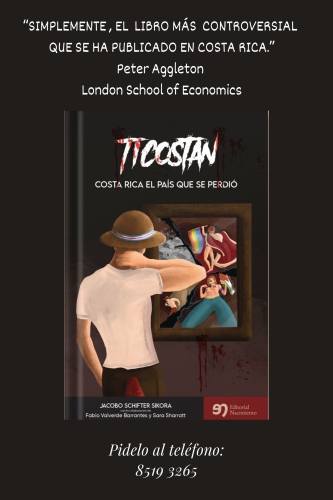Philosophy
- Aesthetics 11
- Eastern 1
- Ethics & Moral Philosophy 2
- General 30
- Hindu 2
- History & Surveys 3
- Logic 1
- Metaphysics 3
- Political 1
- Religious 7
- Social 3
- Taoist 1
Philosophy Books
Sort by:
by:
Henri Bergson
CHAPTER I THE COMIC IN GENERAL—THE COMIC ELEMENT IN FORMS AND MOVEMENTS—EXPANSIVE FORCE OF THE COMIC. What does laughter mean? What is the basal element in the laughable? What common ground can we find between the grimace of a merry-andrew, a play upon words, an equivocal situation in a burlesque and a scene of high comedy? What method of distillation will yield us invariably the same essence from...
more...
by:
John Ruskin
CHAPTER I. OF THE RANK AND RELATIONS OF THE THEORETIC FACULTY. Although the hasty execution and controversial tone of the former portions of this essay have been subjects of frequent regret to the writer, yet the one was in some measure excusable § 1. With what care the subject is to be approached.in a work referred to a temporary end, and the other unavoidable, in one directed against particular...
more...
by:
Blaise Pascal
INTRODUCTION It might seem that about Blaise Pascal, and about the two works on which his fame is founded, everything that there is to say had been said. The details of his life are as fully known as we can expect to know them; his mathematical and physical discoveries have been treated many times; his religious sentiment and his theological views have been discussed again and again; and his prose...
more...
by:
John Ruskin
The work now laid before the public originated in indignation at the shallow and false criticism of the periodicals of the day on the works of the great living artist to whom it principally refers. It was intended to be a short pamphlet, reprobating the matter and style of those critiques, and pointing out their perilous tendency, as guides of public feeling. But, as point after point presented itself...
more...
by:
William Godwin
PREFACE In the ensuing volume I have attempted to give a defined and permanent form to a variety of thoughts, which have occurred to my mind in the course of thirty-four years, it being so long since I published a volume, entitled, the Enquirer,—thoughts, which, if they have presented themselves to other men, have, at least so far as I am aware, never been given to the public through the medium of...
more...
MONTAIGNE AND SHAKSPERE For a good many years past the anatomic study of Shakspere, of which a revival seems now on foot, has been somewhat out of fashion, as compared with its vogue in the palmy days of the New Shakspere Society in England, and the years of the battle between the iconoclasts and the worshippers in Germany. When Mr. Fleay and Mr. Spedding were hard at work on the metrical tests; when...
more...
by:
SOUBHAGYA PRUSTY
"Between the Lines of Heartbeats" is a poignant exploration of love that blooms in silence and lingers in unspoken words. It captures the delicate dance of fleeting glances, missed chances, and the quiet ache of unfulfilled dreams. Through heartfelt chapters, this book delves into the emotions that tether us to a love we can't hold, yet can't let go of. Each page unfolds a journey of...
more...
Civility is beauty of behaviour. It requires for its perfection patience, self-control, and an environment of leisure. For genuine courtesy is a creation, like pictures, like music. It is a harmonious blending of voice, gesture and movement, words and action, in which generosity of conduct is expressed. It reveals the man himself and has no ulterior purpose. Our needs are always in a hurry. They rush...
more...
by:
George Santayana
I THE INTELLECTUAL TEMPER OF THE AGE The present age is a critical one and interesting to live in. The civilisation characteristic of Christendom has not disappeared, yet another civilisation has begun to take its place. We still understand the value of religious faith; we still appreciate the pompous arts of our forefathers; we are brought up on academic architecture, sculpture, painting, poetry, and...
more...
by:
Jacobo Schifter
Un libro polémico acerca de los mitos sobre el país de "Pura Vida" que abarca una crítica mordaz a la cultura woke y al movimiento lbgtq.


